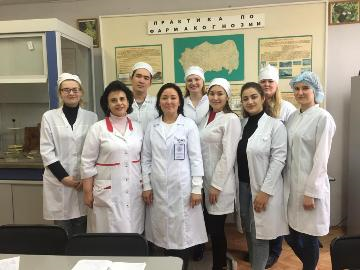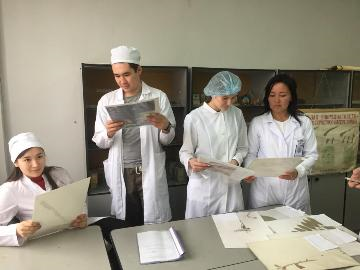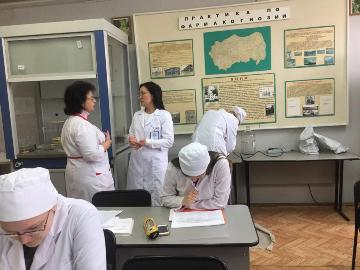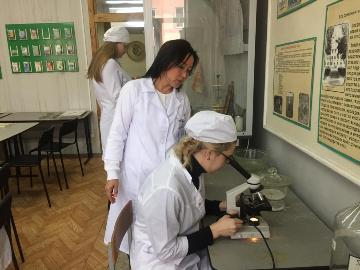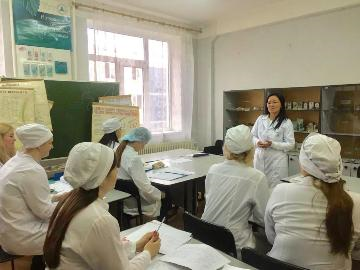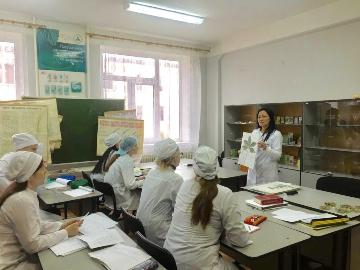The delegation from Kazakhstan participates in the work of the Pharmacognosy department of BSMU in the framework of academic mobility program
On 23 May, Pupykina K.A., Professor of Pharmacognosy at BSMU, and Orynbasarova K. K., associate Professor of Pharmacognosy at SKMA, held the practical lesson on the pharmacognosy topic "Analysis of medicinal plants and medicinal plant materials containing cardiac glycosides" for the 3rd year students of the faculty of Pharmacy at the Pharmacognosy department with the Course of Botany and Basics of Phytotherapy. The practical class was organized according to the Memorandum of cooperation between Bashkir State Medical University and South-Kazakhstan Medical Academy (the Republic of Kazakhstan, Shymkent) within the academic mobility and exchange of the faculty. Students of SKMA, who are having Pharmacognosy practical training in Ufa, Republic of Bashkortostan, attended the lesson.
At the practical lesson, different teaching methods were used: work in small groups, business games, brainstorming and elements of problem learning (PBL).
The purpose of the method is to teach students to find solutions to professional problems by themselves. The teacher sets a task for the group and gives freedom of actions, limited to the role of active observer. Students decide what information is necessary to complete the task, where to get it and how to apply it.
The students were divided into 3 small groups and given specific tasks to establish the morphological, anatomical and diagnostic signs of medicinal plant materials, conduct qualitative reactions and quantification of this group of biologically active substances in the studied objects according to the normative documentation, the use of LRS and herbal products in Medicine.
As a result, the group passed a test on the topic of the lesson, a survey on the proposed teacher samples of herbarium and medicinal plant materials containing cardiac glycosides to assess the formation of competencies and a questionnaire to determine the effectiveness of the proposed methods of training and satisfaction with the quality of teaching.
The results of the control of students' knowledge and questionnaires showed that the use of interactive forms of learning helps to establish emotional contacts between students, to provide high motivation, forms an active life position, mutual respect and democracy.
